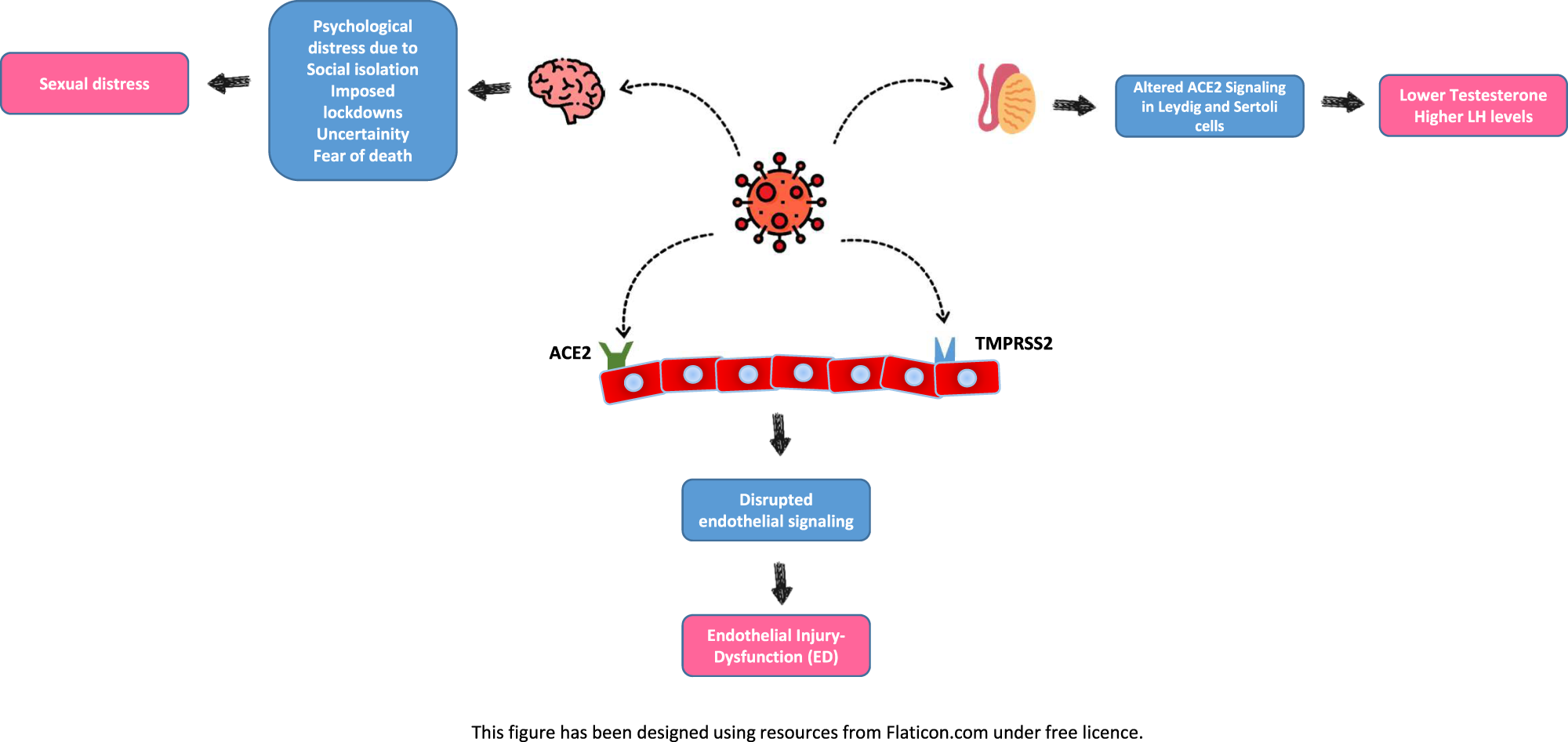Many sexually active people facing economic and psychological pressures and COVID-19-driven health problems made it unavoidable that sexual and reproductive health would be affected in several ways. Sexually active people have experienced due to COVID-19 decreased frequency of sexual life and sexual satisfaction [7, 8]. The pandemic of COVID-19 has disrupted relationships between partners regarding sex life and sexual function [9]. … The relationship between ED and COVID-19 as presented in real life is in line with the pathophysiological mechanisms connecting ED, endothelial dysfunction, and COVID-19 [10,11,12]. An increasing number of studies in the relevant literature make it possible to correlate primarily organic or primarily psychogenic ED with SARS-CoV-2 infection-associated disease [11, 13,14,15].
Abstract
The novel severe acute respiratory syndrome coronavirus 2 caused the coronavirus 2019 (COVID-19) pandemic that resulted in more than 150 million infections and 3.5 million deaths globally. COVID-19 affected men more than women, emerging with more severe disease and higher mortality rates. Androgens may be responsible for the underlying reason of more severe disease, as androgen receptors have been implicated to mediate viral cell entry and infection. Besides, male reproductive organs have been reported to be affected by the especially severe disease, resulting in erectile dysfunction (ED). In this narrative review, we aimed to gather possible mechanisms of the development of ED led by COVID-19. Current evidence illuminates endothelial dysfunction, direct testicular damage, and the psychological burden of COVID-19 that are of the pathways of ED. Although the proposed underlying mechanisms partly fail to answer the questions by which COVID-19 leads to ED, it is important to monitor men who recovered from COVID-19 regarding the sexual dysfunction sequelae of infection and address the long‐term consequences.
Possible pathways through which COVID-19 causes erectile dysfunction

Conclusion
Most data support the role of COVID-19 in ED. Although the exact pathophysiology is not fully elucidated, we strove to gather the most probable reasons around this topic and elaborate on related mechanisms. In summary, COVID-19 infection could affect male sexual function through endothelial damage in erectile tissue, testicular damage, and psychological alterations. Long-term and well-designed studies are needed to clarify the role of COVID-19 on ED.
